By Silvia Montoya, Director of the UNESCO Institute for Statistics, @montoya_sil @UNESCOstat
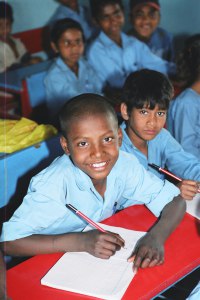 No single organization can produce all of the data needed to monitor Sustainable Development Goal (SDG) 4 – which covers a wide range of issues from learning outcomes to global citizenship. Therefore, the UNESCO Institute for Statistics (UIS), which is the official source of internationally-comparable education data, has been given the mandate to coordinate the different initiatives needed to produce the indicators to monitor the new global education goal and targets.
No single organization can produce all of the data needed to monitor Sustainable Development Goal (SDG) 4 – which covers a wide range of issues from learning outcomes to global citizenship. Therefore, the UNESCO Institute for Statistics (UIS), which is the official source of internationally-comparable education data, has been given the mandate to coordinate the different initiatives needed to produce the indicators to monitor the new global education goal and targets.
Precisely how to measure learning is a challenge, just as it is an opportunity. Five of the seven education targets of SDG 4 focus on learning skills and outcomes of children and adults. Many countries conduct learning assessments, which can be powerful tools to improve outcomes and opportunities. But to leverage this potential, new coordination mechanisms are needed to help the international community define and implement a common measurement framework, strengthen capacity to measure learning outcomes and advocate for the necessary resources.
Global measures of learning such as these, which can be used to track the outcomes of different groups of children and youth over time, will require the active support and consultation of a wide range of stakeholders – from countries and donors to international and citizen-led assessment initiatives.
To make this vision a reality, the UNESCO Institute for Statistics (UIS) is building a Global Alliance for Learning (GAL) to bring together assessment agencies, national education authorities, civil society groups and the international education community. It is uniquely designed to ensure that quality data are used to track progress and formulate policies to improve the learning outcomes of all. Continue reading →
Like this:
Like Loading...
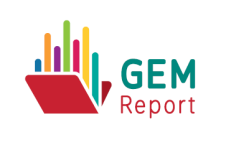 It’s a new year, and we have a new name – The Global Education Monitoring Report (GEM Report). To celebrate the change, we’re launching a new campaign using our logo as an interactive visual. We want to know which of the seven new education targets supporting the global education goal are most important to you. Join in online, and via twitter using #EducationWeWant and @GEMReport.
It’s a new year, and we have a new name – The Global Education Monitoring Report (GEM Report). To celebrate the change, we’re launching a new campaign using our logo as an interactive visual. We want to know which of the seven new education targets supporting the global education goal are most important to you. Join in online, and via twitter using #EducationWeWant and @GEMReport.

 It is now officially ‘post-2015’ and a new set of international goals and targets are in place. The GEM Report has changed its name and logo in order to reflect its new mandate to monitor international education targets until 2030. Our mandate was officially confirmed in the
It is now officially ‘post-2015’ and a new set of international goals and targets are in place. The GEM Report has changed its name and logo in order to reflect its new mandate to monitor international education targets until 2030. Our mandate was officially confirmed in the 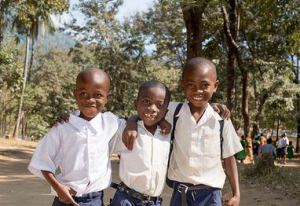
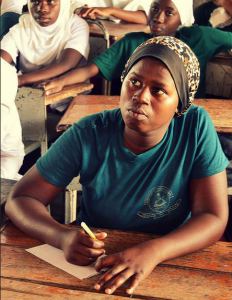
 By Raya Muttarak, Wittgenstein Centre for Demography and Global Human Capital (IIASA, VID/ÖAW and WU), and the International Institute for Applied Systems Analysis (IIASA), Austria.
By Raya Muttarak, Wittgenstein Centre for Demography and Global Human Capital (IIASA, VID/ÖAW and WU), and the International Institute for Applied Systems Analysis (IIASA), Austria.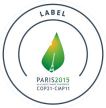 Our
Our  The completion of higher levels of education does not automatically translate into more responsible behaviour towards the environment. But as the influential Stern Review on climate change noted: ‘Educating those currently at school about climate change will help to shape and sustain future policy-making, and a broad public and international debate will support today’s policy-makers in taking strong action now’.
The completion of higher levels of education does not automatically translate into more responsible behaviour towards the environment. But as the influential Stern Review on climate change noted: ‘Educating those currently at school about climate change will help to shape and sustain future policy-making, and a broad public and international debate will support today’s policy-makers in taking strong action now’.
 No single organization can produce all of the data needed to monitor Sustainable Development Goal (SDG) 4 – which covers a wide range of issues from learning outcomes to global citizenship. Therefore, the UNESCO Institute for Statistics (UIS), which is the official source of internationally-comparable education data, has been given the mandate to coordinate the different initiatives needed to produce the indicators to monitor the new global education goal and targets.
No single organization can produce all of the data needed to monitor Sustainable Development Goal (SDG) 4 – which covers a wide range of issues from learning outcomes to global citizenship. Therefore, the UNESCO Institute for Statistics (UIS), which is the official source of internationally-comparable education data, has been given the mandate to coordinate the different initiatives needed to produce the indicators to monitor the new global education goal and targets.




